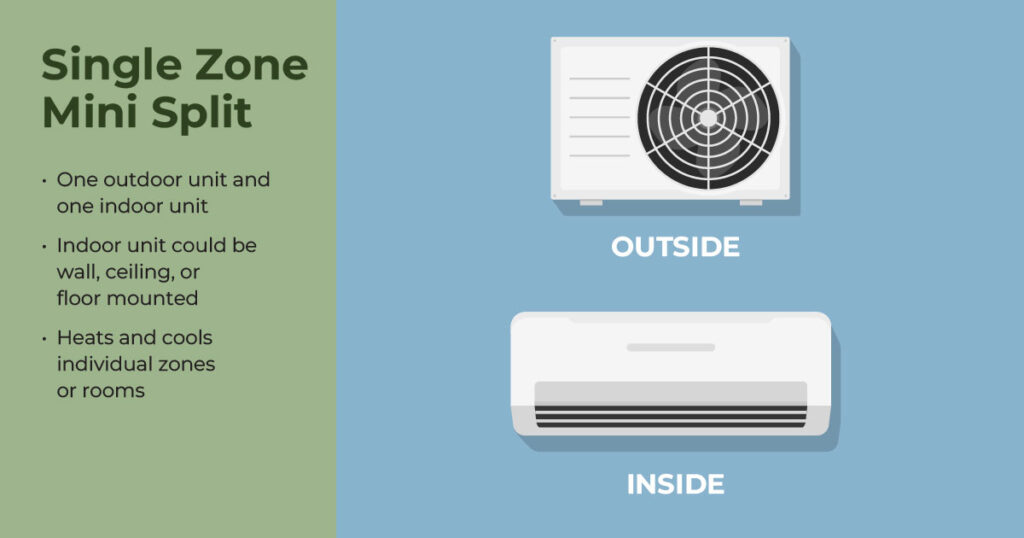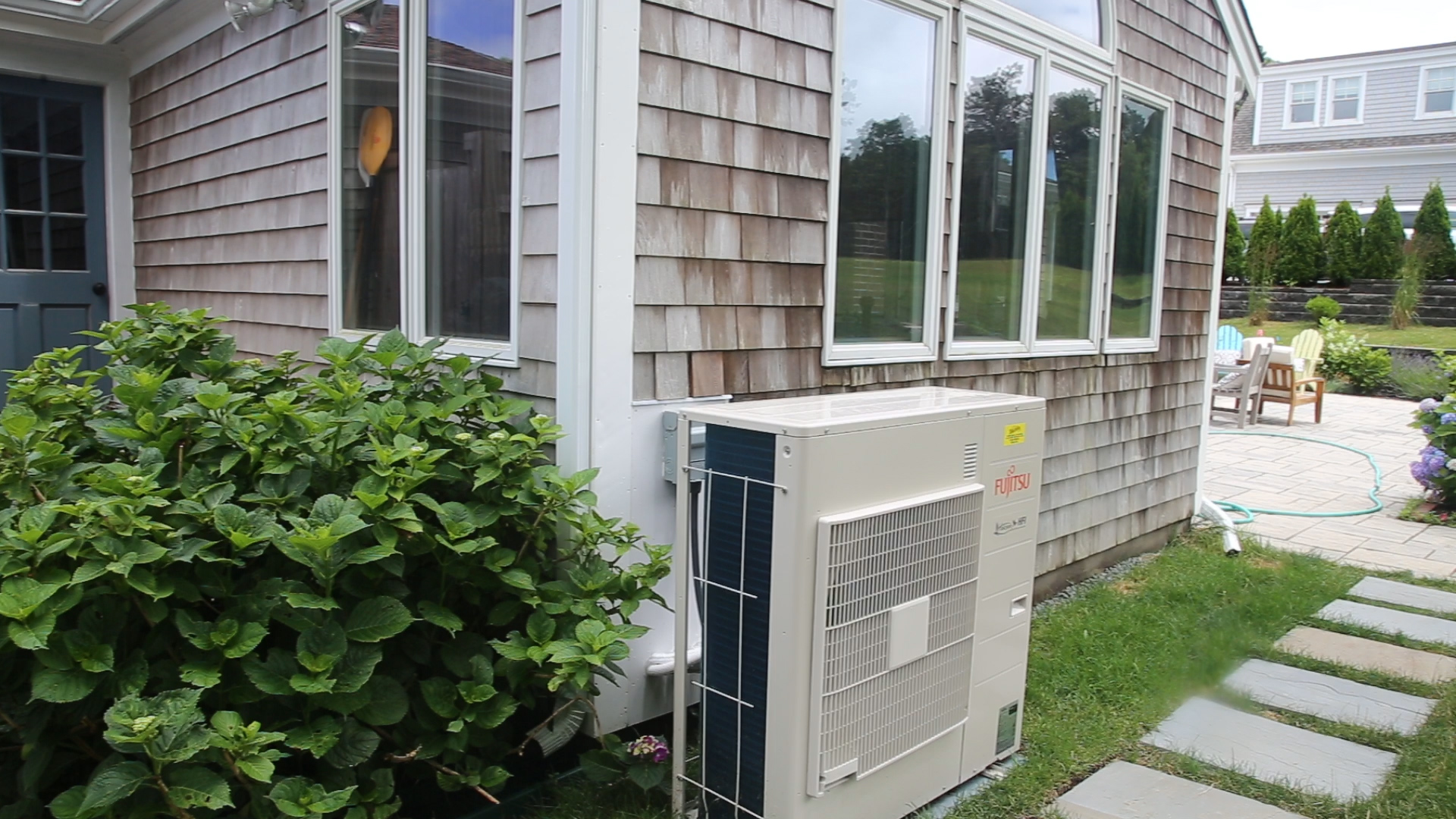Here’s everything you need to know.
If you are looking to replace your existing HVAC system, it might be hard to decide if switching to a heat pump is right for you. Heat pumps have become an increasingly popular choice for both heating and cooling thanks to their efficiency, comfort, and environmental benefits. However, this eco-friendly option is often misunderstood, and there are several factors you should consider before making a decision.
What is a Heat Pump?
Heat pumps go way beyond just heat. They provide heating, cooling, and dehumidification all in one unit and can offer many additional benefits, including energy savings, cleaner air, and improved comfort.
How does a Heat Pump work?
Many customers may be shocked to learn they already have a heat pump in their house. A heat pump uses the same technology as a refrigerator, where compressed refrigerant is used to move heat from one place to another. In colder months, a heat pump extracts heat from outside—even if it’s chilly out—and transfers it inside your home or business to provide heating that is clean and comfortable. During the warmer months, the process is reversed. Heat is moved from inside to outside, while making sure your home or business stays cool. Heat pumps also dehumidify in the summer and filter indoor air year-round.
Also, in comparison to natural gas, propane, oil, and electric resistance heating systems, a heat pump is a much more energy efficient system because it is simply moving existing heat, a process that can be 300-400% efficient (energy in/energy out), compared to using combustion for heat, a process that can never be more than 100% efficient.
Check out this video to learn more.
When should I consider replacing my HVAC system?
There are a few things to consider when deciding which heat pump is right for your home or business:
- If your heating and cooling system is showing its age and needs to be replaced (the general recommendation is to replace HVAC systems every 10-15 years), converting to a heat pump comfortably checks that box. When replacing an old central AC unit, replacing it with a heat pump is a quick and easy way to add redundancy to your heating system.
- If you’re also interested in energy efficiency, improved comfort, and moving away from fossil fuels, then a heat pump checks all those boxes as well.
Choosing a Heat Pump:
There are several different kinds of heat pumps to consider when choosing which one is right for your home or business. It may sound pretty technical, but you can talk to your contractor about which option is right for you. Find a participating contractor here.
- Air Source, Air-to-Water, or Ground Source?
- Air-source heat pumps pull heat from the air. To distribute heat, it uses a coil and a fan (sometimes called forced hot air). These are the most common types of heat pump systems.
- Air-to-Water heat pumps use the same concept as an air source heat pump for drawing out heat from the outdoor air. The difference is that it delivers the heat via water piped through a home (rather than hot air) in the same way a gas boiler’s radiators do. They also offer solutions for water heating that can be integrated as part of the system.
- Ground Source heat pumps pull heat from the ground instead of from the air, like the two systems mentioned above. Ground Source heat pumps are less common because they need a lot of ground space and are generally more costly to install.
- Ducted or Ductless (Mini Splits)?
- Ducted air source heat pumps, also known as central ducted heat pumps, use ductwork to deliver heating and cooling. This is an effective option for someone who already has ducts in place for a furnace or central AC.
- Ductless heat pumps, also known as mini splits, heat and cool without the need for ductwork. Instead, they use a head unit mounted on an interior wall or ceiling, with an accompanying unit outside. If you have a home that’s lacking the proper ductwork, mini splits are a great (and cost-effective) option.
- Supplement or Replace Your Existing System?
- A whole-home heat pump serves as the primary heating and cooling source for a whole home or business. It completely replaces your current system.
- A partial-home heat pump may be used for a single heating zone, or it can be integrated with an existing heating system. In this scenario, the heat pump serves as the primary heat source, but when the outdoor temperature dips below a specified temperature (typically no higher than 30 degrees), the pre-existing oil, propane, or natural gas system will kick on.



Will a Heat Pump Save You Money?
Every home is different. Use this calculator to see how making the switch to a heat pump may impact your heating and cooling costs: https://www.masssave.com/residential/heating-comparison-calculator
In November of 2025, Eversource will be rolling out Heat Pump rates, which allow customers who heat with heat pumps to receive a reduced rate on their electric bill from November through April. This rate makes heating with a heat pump cost-competitive with heating with natural gas and will save money over an oil or propane system.
You can also learn more about incentives for heating and cooling or learn about extra savings available for income-eligible customers. You may also qualify for financing through the Mass Save HEAT Loan or the Energy Saver Home Loan.
How to get started
- Call the Compactat 1-800-797-6699 to schedule a no-cost Home Energy Assessment to get a complete picture of the specific needs of your building.
- You can also sign up for a virtual or in-person Energy Coaching session to get personalized help navigating Energy Efficiency programs, financing options, and more.
- Make sure your home is properly insulated so that your heating & cooling system can work as efficiently as possible.
- Contact a participating Heat Pump Installer and note that rebates and financing are only available for installation completed by a contractor that is part of the Heat Pump Installer Network (HPIN).
